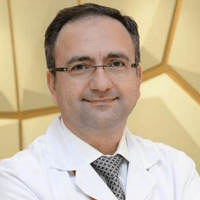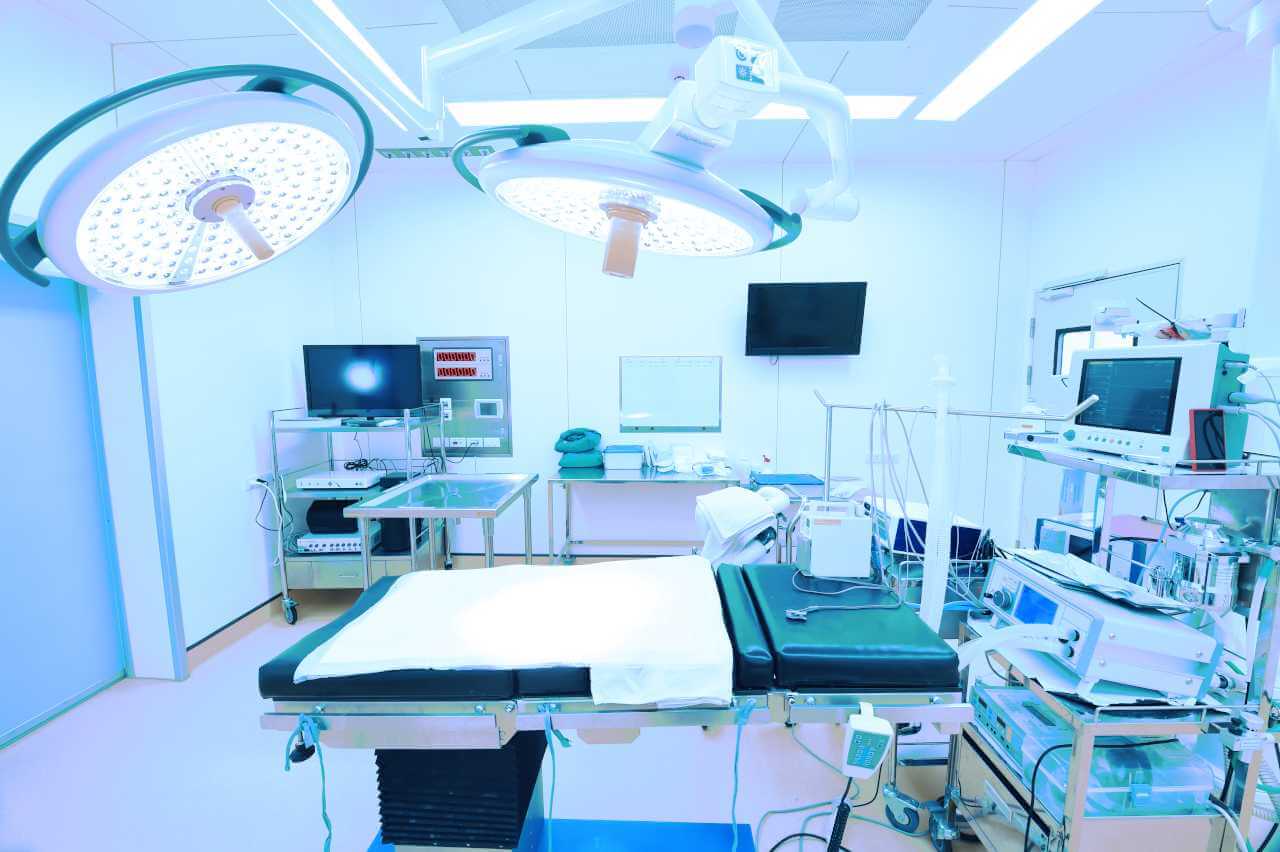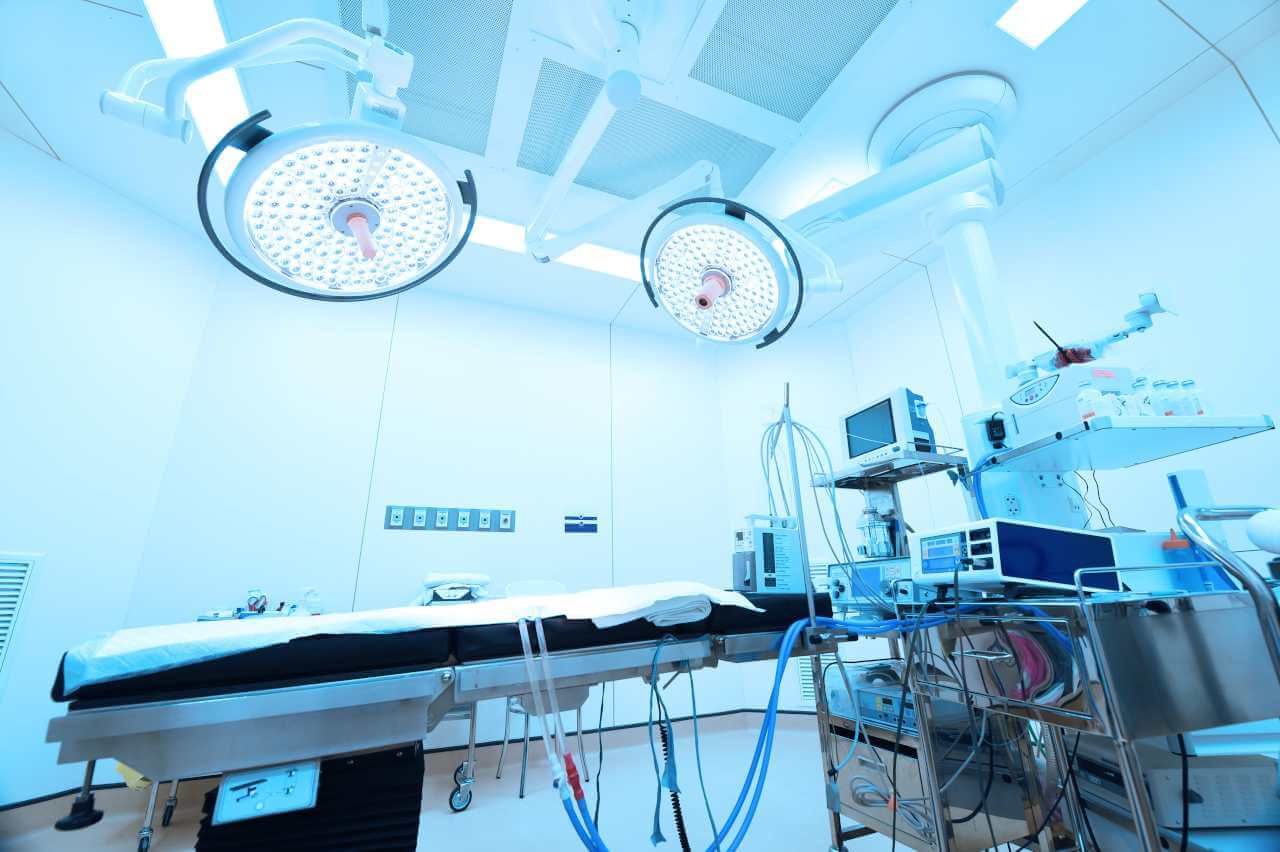
The program includes:
- Initial presentation in the clinic
- clinical history taking
- general clinical examination
- laboratory tests:
- complete blood count
- general urine analysis
- biochemical analysis of blood
- inflammation indicators (CRP, ESR)
- indicators of blood coagulation
- tumor markers, PSA
- ultrasound scan of the urogenital system
- CT scan/MRI
- preoperative care
- nerve-sparing da Vinci prostatectomy
- histological and immunohistochemical
examination of the removed tissues - symptomatic treatment
- cost of essential medicines
- control examinations
- nursing services
- stay in the hospital with full board
- accommodation in 2-bedded room
- elaboration of individual treatment plan
How program is carried out
During the first visit, the physician will conduct a clinical examination and go through the results of the available diagnostic tests. After that, you will undergo the necessary additional examination, such as the assessment of liver and kidney function, ultrasound scan of the abdominal and pelvic organs. Based on the results of the examination, the physician will choose the surgical technique and the type of anesthesia.
Surgery with the da Vinci robot starts with general anesthesia. After anesthesia, the surgeon makes small incisions through which the manipulators of the da Vinci robot and a video camera are inserted into the pelvic cavity. With the help of manipulators, the surgeon ligates the large vessels of the small pelvis, isolates the nerve endings, excises and removes the prostate gland. The video camera continuously transmits a three-dimensional image of the operating field in 12-fold magnification to the monitor.
As the surgeon sees the operating field in multiple magnification, he preserves the nerve endings responsible for erection and urination. Also, normal blood supply of the pelvic organs is maintained after operations with the da Vinci robot. This is the most sparing type of surgical prostatectomy.
After the completion of the operation, you will be transferred back to the ward, under the supervision of the attending physician and nursing staff. Due to the minimal invasiveness of the operation and the short duration of general anesthesia, you will not need to stay in the intensive care unit for a long time. Your urinary catheter will be removed one day after the surgery.
Finally, the attending physician will evaluate the results of control examinations, schedule the date of discharge from the hospital and give you detailed recommendations for further follow-up and treatment.
Required documents
- Medical records
- MRI/CT scan (not older than 3 months)
- Biopsy results (if available)
Service
You may also book:
 BookingHealth Price from:
BookingHealth Price from:
About the department
The Department of Urology and Andrology at the Memorial Bahçelievler Hospital Istanbul offers the full range of medical services for the diagnostics and treatment of diseases of the male reproductive system, pathologies of the kidneys, ureters, bladder and urethra in men and women. The field of competence of the department's doctors also includes medical care for men suffering from andrological disorders, including infertility, erectile dysfunction, ejaculatory disorders, etc. The department's medical team provides each patient with an individual approach to his clinical case.
The Chief Physician of the department is Prof. Dr. med. Volkan Tugcu. The specialist has colossal clinical experience and excellent qualifications. He is the author of numerous national and international scientific publications and has received prestigious awards in the field of urology. The doctor has developed his own method of robotic surgery, which he called "Tuğcu Bakırköy Technique".
The medical facility has an excellent medical and technical base, which allows the doctors to carry out high-precision diagnostics and effective treatment of even the most complex urological pathologies. The department performs almost all surgical interventions using laparoscopic, endoscopic and robotic techniques that effectively improve the condition of the genitourinary system and at the same time provide the patient with a speedy postoperative recovery, minimal pain and surgical risks. The department's urologists regularly undergo advanced training courses, during which they acquire knowledge about innovations in the area of their specialization and implement them in their clinical practice.
Particular place in clinical practice is given to the detection and treatment of urological cancers – prostate, testicular, bladder and kidney tumors. To diagnose prostate cancer, the department uses a PSA test and fusion biopsy with simultaneous reproduction of MRI and ultrasound images. These tests make it possible to confirm or exclude the diagnosis of prostate cancer with maximum accuracy. In most cases, the department performs robot-assisted prostatectomy to treat prostate cancer. It can be supplemented with chemotherapy, radiation therapy, etc. The patients with contraindications for surgery are prescribed HIFU (high-intensity focused ultrasound) therapy. All these innovative methods of diagnostics and treatment can successfully treat prostate tumors and significantly prolong the life of patients.
The department also often provides treatment for bladder cancer. According to statistics, pathology more often affects men than women. To confirm the diagnosis, the department's doctors perform a transurethral resection of the bladder – endoscopic operation for removal of a tumor (polyp) of the bladder, followed by microscopic examination of the sampled tissue. Depending on the examination results, an optimal treatment regimen is developed for the patient, which may include injection therapy, chemotherapy, radiation therapy and radical cystectomy (total removal of the bladder). The combination of therapeutic measures is selected exclusively on an individual basis.
The department also deals with the treatment of andrological problems related to the reproductive and sexual health of males. In the case of suspicion of male infertility, the patient should undergo a spermogram, which assesses the quality of the sperm. If the results of the spermogram are unsatisfactory, the department's specialists carry out additional examinations in order to determine the causes of infertility, which plays a decisive role in the successful therapy. As a rule, the main causes of infertility in men are hormonal disorders, varicocele, undescended testicles, infectious testicular lesions, previous sexually transmitted diseases, chemotherapy, radiation therapy, etc. The department's medical team has in its arsenal many effective assisted reproductive technologies for the treatment of male infertility factor. These include intrauterine insemination, intracytoplasmic sperm injection (ICSI), micro-TESE (microdissection testicular sperm extraction) and TESA (testicular sperm aspiration).
The department's key clinical focuses include:
- Diagnostics and treatment of urologic cancers
- Prostate cancer
- Testicular cancer
- Kidney cancer
- Bladder cancer
- Diagnostics and treatment of urinary incontinence
- Diagnostics and treatment of urinary disorders
- Diagnostics and treatment of kidney stone disease (extracorporeal shockwave therapy, percutaneous nephrolithotomy, ureterorenoscopy, retrograde intrarenal surgery)
- Diagnostics and treatment of andrological diseases in men
- Male infertility
- Erectile dysfunction
- Decreased libido
- Structural penile deformities
- Ejaculatory disorders
- Sexually transmitted disease
- Varicocele (varicose veins of the testicles)
- Prostate diseases
- Age-related changes affecting men's health
- Diagnostics and treatment of other urologic diseases
Curriculum vitae
- Since 2018 Head of the Department of Urology and Andrology at the Memorial Bahçelievler Hospital Istanbul, as well Professor of Urology.
- 2017 - 2018 Professor of Urology and Head of the Department of Urology, University of Medical Sciences, Dr. Sadi Konuk Training and Research Hospital, Bakirkoy.
- 2010 - 2017 Assistant Professor in the Department of Urology, University of Medical Sciences, Dr. Sadi Konuk Training and Research Hospital, Bakirkoy.
- 2004 - 2010 Specialized Physician in Urology, University of Medical Sciences, Dr. Sadi Konuk Training and Research Hospital, Bakirkoy.
Higher Education and Postgraduate Training
- 1999 - 2003 Highly specialized training in Urology, Medical Faculty at the Bezmialem Vakif University.
- 1993 - 2004 Study of Human Medicine at the Faculty of Medicine of the Uludag University.
Scientific Publications
- 80 scientific publications in international journals.
- 50 scientific publications in national journals.
- 185 reports presented at national congresses, 45 reports presented at international congresses.
Awards and Honors
- 2018 Best Video Award at the International Symposium on Robotic Surgery and New Technologies in Prostate Cancer Treatment.
- 2016 Doctor of the Year Award of the Ministry of Health.
- 2012 Best Poster Presentation of the European Urology Congress, France.
- 2010 Best Video Award of the EurAsian Uro-Oncology Congress.
- 2010 Certificate of Appreciation of the Bakırköy District Governorship.
- 2008 - 2009 Best Research Paper in the American Journal of Endourology.
- 2007 - 2008 Appreciation Certificate from Istanbul Provincial Health Directorate.
- 2007 Article "Chronic Prostatitis" in the European Journal of Urology – the most reputable journal in urology. The article was included in the continuing medical education program.
Special Achievements of the Doctor
- The doctor developed his own robot-assisted surgery method called Tuğcu Bakırköy Technique.
- The doctor trained 80 Turkish and foreign Urology Specialists in Robotic and Laparoscopic Surgery.
- The doctor organized 11 courses for training of urologists.
- 2006 The doctor gave courses in laparoscopy, Heidelberg University, Germany.
Memberships in Professional Societies
- 2017 Board Member of the Turkish Urology Association.
- 2010 Member of the Turkish Endourological Society.
- 2010 Member of the European Association of Urology.
- 2010 Member of the Turkish Society of Andrology.
Photo of the doctor: (c) Memorial Bahçelievler Hospital
About hospital
The Memorial Bahçelievler Hospital Istanbul is an advanced multidisciplinary medical center that began its clinical practice in 2018. It is part of the world famous Memorial Healthcare Group. The hospital was designed in accordance with the very latest standards of modern architecture with the aim of providing top-class medical services in a pleasant and patient-oriented environment. It is worth noting that the interior of the medical facility is full of live plants, which have a positive impact on people and their mood. The hospital is awarded the prestigious LEED Platinum Certificate, confirming the highest level of environmental friendliness and safety of the buildings of the medical complex.
The hospital has 320 beds for patient hospitalization. The medical and technical base of the hospital is one of the best and most advanced in Turkey – modern diagnostic rooms with MRI, CT, PET-CT scanners, gamma cameras, X-ray equipment, mammography systems and other equipment, 15 operating rooms, including for robot-assisted, endoscopic and hybrid surgical interventions, intensive care units, etc. The hospital also has a high-performance state-of-the-art Elekta Versa HD SIGNATURE system for radiation therapy.
The powerful technical resources of the hospital are complemented by a highly professional medical staff, who have achieved significant success not only at the national level, but also in the international medical arena. The doctors and nursing staff of the hospital are distinguished by excellent medical qualifications, as well as humane and compassionate attitude towards each patient. They strongly support their patients on their way to recovery.
The medical center admits not only Turkish citizens for treatment, but also patients from 92 countries of the world, and therefore it boasts a wealth of experience in serving international patients with clinical cases of varying complexity.
Photo: (c) Memorial Bahçelievler Hospital, (c) depositphotos
Accommodation in hospital
Patients rooms
The patients of the Memorial Bahçelievler Hospital Istanbul live in cozy rooms with an excellent layout and modern design. The standard patient rooms are equipped with a comfortable automatically adjustable bed, a bedside table, a table and a chair, a wardrobe, a sofa for receiving visitors. The patient room also includes a TV, a telephone and Wi-Fi. Each room has an ensuite bathroom with shower and toilet. The hospital also provides patients with enhanced-comfort rooms corresponding to a five-star hotel.
Meals and Menus
The patient and the accompanying person are offered tasty and balanced three meals a day. If for some reason you do not eat all foods, you will be offered an individual menu. Please inform the medical staff about your food preferences prior to treatment.
Further details
Standard rooms include:
Accompanying person
During the inpatient program, the accompanying person can live with the patient in a patient room or a hotel of his choice. Our managers will help you choose the most suitable option.
Hotel
During an outpatient program, the patient can stay at the hotel of his choice. Our managers will help you choose the most suitable option.




